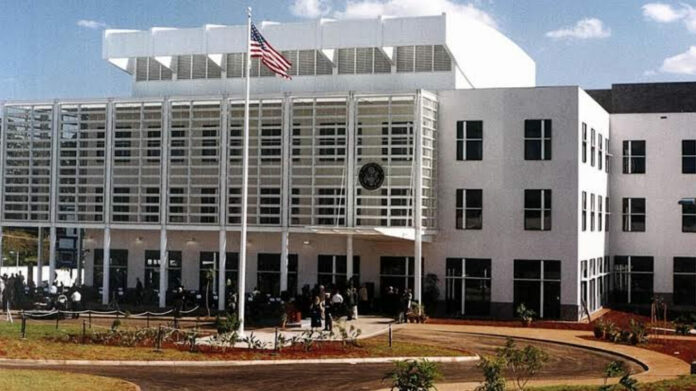What you say or do during your US Visa interview at the US Embassy will largely determine if you will get a visa or the dreaded pink denial slip. Here, we take a look at the eight things you should not do during your US visa interview:
1). Involuntary Information: Do not give any information voluntarily which the US Embassy visa officer didn’t ask. People trying to be over-smart over and confident give out more detailed answers than is required.
It may trigger additional related questions which may not work in your favor. Do not go off on tangents or tell your life story. Only answer the question that is being asked and do not provide more details than necessary.
Remember, the US Embassy immigration officer is doing many interviews a day, and you do not want to annoy them. Moreover, rambling is often a result of nervousness and fear, and you don’t want to give the officer any reason to assume you are not being honest.
2). Incomplete and Untruthful Information: It is also very important that you should provide complete and truthful information. Any incomplete/false information can lead to unnecessary delay. False information can have severe impact on your future ability to apply for US visa. It may also cause you lot of frustration and legal actions against you.
3). Rudeness: During your US Embassy visa interview, it’s important to be polite and courteous to the consular officer. Avoid being confrontational or argumentative, even if you disagree with a question or decision. Remember, the consular officer has the final say on whether to approve your visa or not.
4). Unstable home ties: The US Embassy consular officer will want to know that you have strong ties to your home country, such as a job, family, or property. If you can’t demonstrate these ties, the consular officer may suspect that you have intentions of staying in the US beyond the duration of your visa.
B1/B2 Visa questions I was asked at US Embassy Nairobi, my answers and results
Make sure to bring documentation that demonstrates your ties to your home country such as children’s birth certificates, marriage certificate, work letter confirmation, proof of approval from the employer for taking vacation from work, medical appointments scheduled after your return.
5). Unpreparedness: Never go into your immigration interview at the US Embassy unprepared. You should have a good, solid understanding of what will be asked of you during the interview. You should read through your entire file multiple times and make sure you clearly understand and agree with everything being submitted.
If you are working with an immigration lawyer, they should prepare you and let you know what types of questions to expect. When you go in for an interview, whether it is inside the United States or at an embassy outside of the United States, you will be given a list of documents that are required for the interview.
Make sure you have all the required documents with you when you go in for your interview. Failure to bring all the required documents could lead to a rescheduling of your interview or even the cancellation of your case.
6). Poor Dressing Code: Remember – this is an interview! It should be treated as such. We recommend you dress in business casual attire. You do not need to wear a full suit, but you definitely should not be wearing sweatpants or loungewear. The first impression you make on an officer is very important, and it starts with what you choose to wear that day.
7). Unkempt documents: Torn documents a strict no no– Make sure the visa related documents are presentable. Don’t use torn or crushed documents. No amount of reasoning and logic can help you if your documents look horrible.
8). Guesswork: One of the biggest mistakes that people make during their immigration interview is guessing. If you do not know the answer to a question, it is best to say, “I do not know.”
Guessing can lead to serious consequences as the immigration officer may determine that you were lying if your answer turns out to be incorrect. This could lead to your case being viewed with a higher amount of scrutiny, or worse, it could result in a denial.









